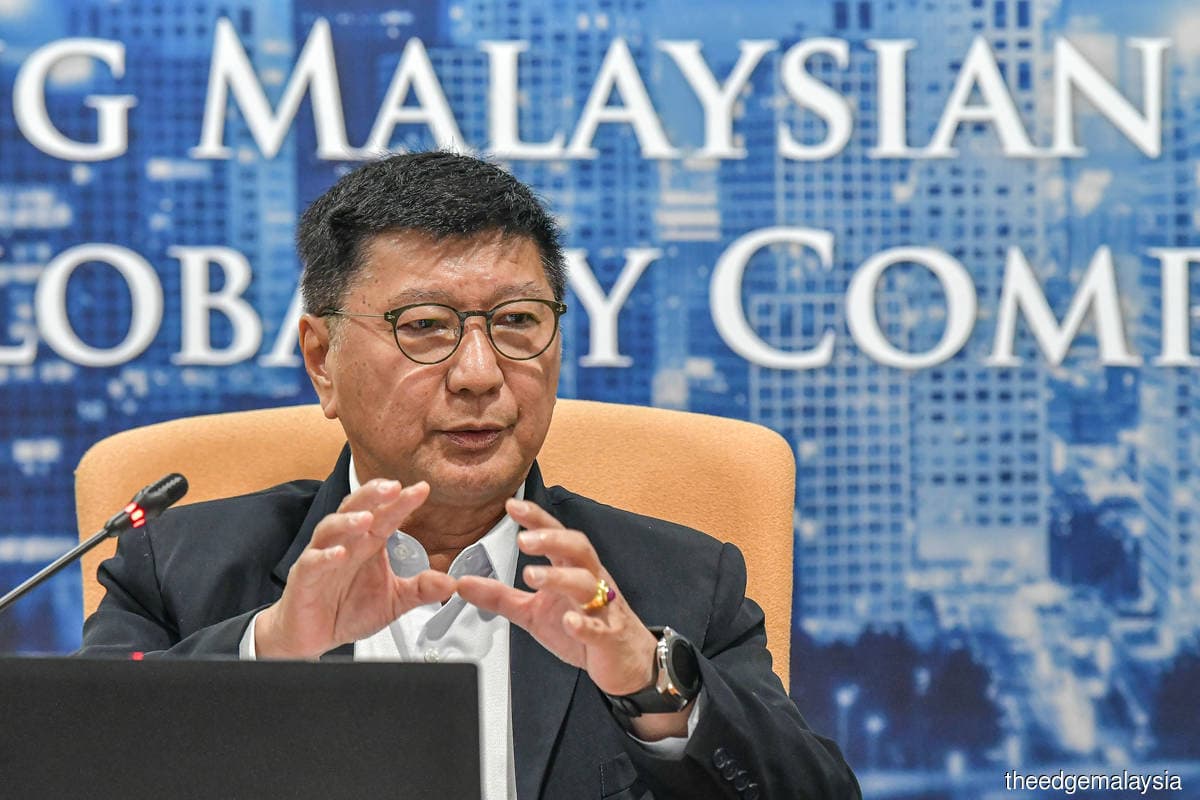
KUALA LUMPUR (April 18): Malaysia needs to restructure the whole ecosystem of technical and vocational education and training (TVET) programmes, so that it can effectively meet the industry’s requirements, said Federation of Malaysian Manufacturers (FMM) president Tan Sri Soh Thian Lai.
“The issue now is about how we can reduce the mismatch [between the syllabus and industry needs]. There are too many TVET institutions currently, where only some can meet the needs of the industry, while others cannot. If the syllabus is not relevant, we can inform the government.
“Let us say in Penang and northern regions, where the industries are more focused on electrical and electronics (E&E), the TVET institutions should focus more on relevant courses related to E&E. In Tanjung Malim, Perak, they should focus more on the automotive industry, while Selangor can focus on data centres,” Soh said at a press conference on Thursday.
Soh was speaking at the event hosted by the Government-Industry TVET Coordination Body (GITC), which he chairs. Notably, this was the body's first press conference since its establishment in October 2022.
The GITC’s role is to drive the industry-led TVET empowerment agenda, and play the key role of being a unified source of inputs from the industry towards the development of TVET in the country. The organisation acts as a coordinator and facilitator for inputs to be channelled to ministries or agencies and TVET providers.
Soh also highlighted several shortcomings in the current TVET ecosystem, among them a lack of sustainable coordination and collaboration mechanisms between industries at the national level, insufficient industry response to TVET initiatives, and limited industry engagement across each state.
In addition, he takes the view that TVET students should have a more “work-based approach”.
“Sixty per cent of TVET students’ syllabus should prioritise industry experience, with the remaining 40% on the academic aspects,” he explained.
The GITC chairman also added that Malaysia had been slow in enhancing its skilled workforce, as compared to neighbouring countries.
Despite that, he added, Malaysia is still among the top 20 trading nations, and its economic growth is projected to be positive this year.
Other members of the GITC board include Datuk Dr Megat Sany Megat Ahmad Supian from the Ministry of Higher Education, Datuk P’ng Soo Hong from the Malaysia Semiconductor Industry Association, and Datuk Astaman Abdul Aziz from the Master Builders Association of Malaysia.
Changing parental beliefs to tackle low TVET enrolment
Soh further pointed out that TVET institutions face challenges of low enrolment. This issue stems from parental beliefs that TVET does not offer opportunities for high-paying careers, and is primarily for students who are unable to get an admittance into universities.
"The GITC aims to shift this mindset, particularly among parents, by portraying TVET as a pathway to valuable skills and professions. We are striving to create a future where TVET is embraced and seen as a viable option. We admit that we are running out of time, but we are now moving to the execution phase,” he said.
Among the initiatives that will be undertaken by the GITC is the establishment of the GITC Placement Centre by September, which is intended to facilitate internships and job opportunities for TVET graduates.
Additionally, industry leaders will conduct career talks and job fairs in October to develop more dynamic internship programmes.
GITC's strategic action plan
The GITC has outlined five primary agendas in its strategic action plan in a move to revamp TVET programmes.
Firstly, the body will advise the government on the formulation of TVET-related policies, including proposals for consolidating TVET funds within the national budget and establishing a single TVET regulatory body. Additionally, it advocates for the creation of a comprehensive labour market intelligence report and the development of TVET certification policies and regulations.
Secondly, the plan focuses on fostering strategic collaborations with employers, TVET institutions, and professional bodies. This involves the establishment of a TVET co-ownership model between the government and industry for sharing equipment, technology, expertise, and innovation. Furthermore, it includes efforts to collaborate on international skills accreditation methodologies to ensure alignment with global standards, such as the NQRF developed by Unesco Unevoc standards.
The third agenda involves planning manpower requirements through engagement sessions with relevant agencies and ministries. This entails the development of a digital data sharing platform to match supply and demand in the labour market.
Furthermore, the GITC aims to promote TVET programmes and enhance career advocacy through active collaborations between public and private institutions. A key initiative in this regard is the creation and piloting of a cooperation scheme for internships and apprenticeships between large corporations and small and medium enterprises.
The fifth agenda, meanwhile, is to recommend incentives to encourage industry participation in TVET development to the government. This includes incentivising TVET valued industry partners (TVET VIPs) and developing multiple joint-incentive systems for lifelong learning among various stakeholders.
